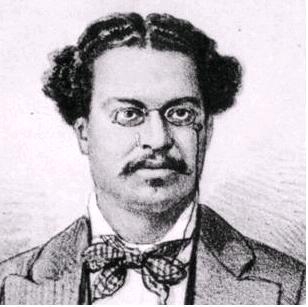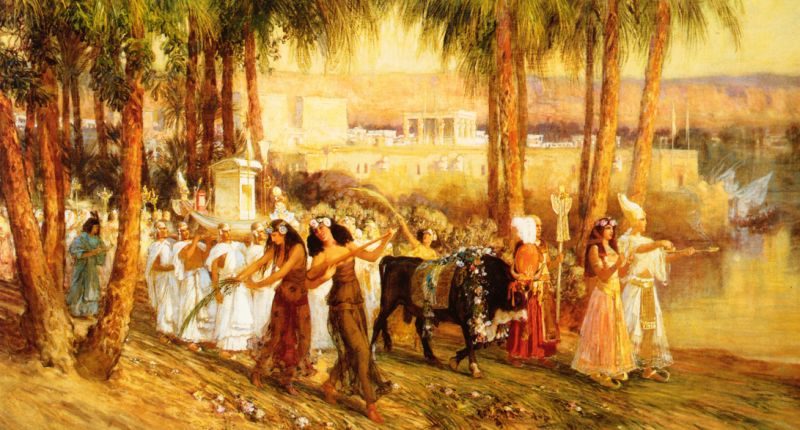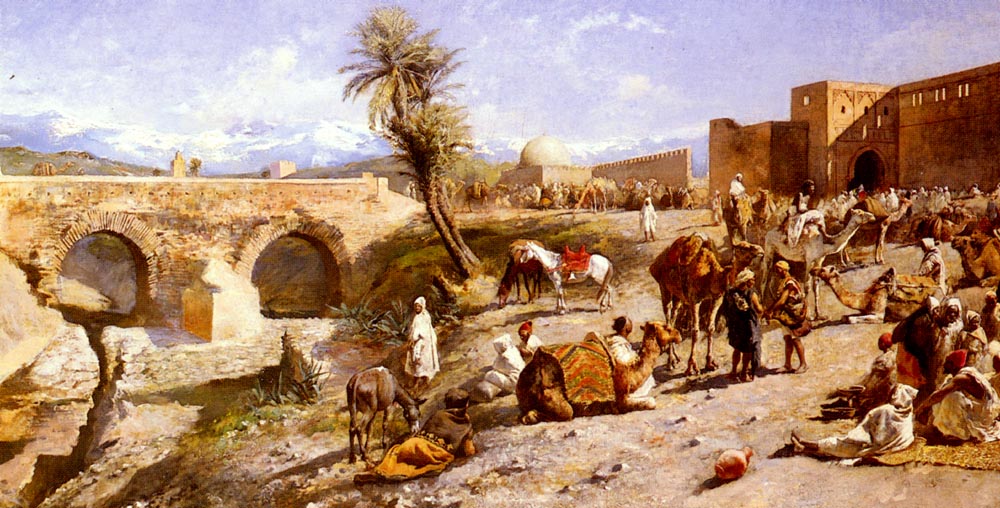|
Frevo
Frevo is a dance and musical style originating from Recife, Pernambuco, Brazil, traditionally associated with Brazilian Carnival. The word ''frevo'' is said to come from ''frever'', a variant of the Portuguese word ''ferver'' (to boil). It is said that the sound of the ''frevo'' will make listeners and dancers feel as if they are boiling on the ground. The word frevo is used for both the frevo music and the frevo dance. Origins of Frevo The frevo music came first. By the end of the 19th century, bands from the Brazilian Army regiments based in the city of Recife started a tradition of parading during the Carnival. Since the Carnival is originally linked to Catholicism, they played religious procession marches and martial music, as well. A couple of infantry and cavalry regiments had famous bands which attracted many followers amongst the populace of the state and it was just a matter of time to people start to compare one to another and cheer for their favorite bands. The t ... [...More Info...] [...Related Items...] OR: [Wikipedia] [Google] [Baidu] |
SpokFrevo Orquestra
Inaldo Cavalcante de Albuquerque, better known as Spok or Maestro Spok, is a Brazilian sax player who is one of the main frevo composers in the state of Pernambuco. His big band, SpokFrevo Orquestra, composed of 18 musicians, is considered one of the most important frevo groups in the city of Recife. It has performed in many countries of the world, spreading the frevo rhythm. Spok has played with many other Brazilian artists, such as Raimundo Fagner, Alceu Valença, Antonio Nóbrega, Elba Ramalho, Geraldo Azevedo, Sivuca, Naná Vasconcelos and Rivotrill. Spok has been called the new frevo ambassador for his contributions to the development and spread of the frevo rhythm. Biography Inaldo Cavalcante de Albuquerque was born in Igarassu, Pernambuco, Igarassu, Pernambuco, Brazil. However, he lived in Abreu e Lima for most of his childhood, and began his musical studies there in 1984. Two years later, in 1986, he moved to Recife, where he worked with the greatest conductors and composer ... [...More Info...] [...Related Items...] OR: [Wikipedia] [Google] [Baidu] |
Brazilian Carnival
The Carnival of Brazil (, ) is an annual festival held the Friday afternoon before Ash Wednesday at noon, which marks the beginning of Lent, the forty-day period before Easter. During Lent, Roman Catholics and some other Christians traditionally abstain from the consumption of meat and poultry, hence the term "carnival", from ''carnelevare'', "to remove (literally, "raise") meat." Carnival is the most popular holiday in Brazil and has become an event of huge proportions. Except for industrial production, retail establishments such as malls, and carnival-related businesses, the country unifies completely for almost a week and festivities are intense, day and night, mainly in coastal cities. Rio de Janeiro's carnival alone drew 6 million people in 2018, with 1.5 million being travelers from inside and outside Brazil. Rio_Carnival, Rio's carnival is the largest in the world according to Guinness World Records. Historically its origins can be traced to the Age of Discovery#Portugues ... [...More Info...] [...Related Items...] OR: [Wikipedia] [Google] [Baidu] |
Recife
Recife ( , ) is the Federative units of Brazil, state capital of Pernambuco, Brazil, on the northeastern Atlantic Ocean, Atlantic coast of South America. It is the largest urban area within both the North Region, Brazil, North and the Northeast Region, Brazil, Northeast Region of Brazil. It is the largest city in Pernambuco state, and the fourth-largest urban area in all of Brazil; the Metropolitan area, metro population of the city of Recife was 3,726,974 in 2022. Recife was founded in 1537, serving as the main harbor of the Captaincy of Pernambuco—known for its Brazilian sugar cycle, large-scale production of sugar cane. At one point, it was known as Mauritsstad, when it served as the capital city of the 17th century colony of New Holland (Brazil), New Holland of Dutch Brazil (founded by the Dutch West India Company). Situated at the confluence of the Beberibe River, Beberibe and Capibaribe River, Capibaribe rivers, before they drain into the South Atlantic Ocean, Recife is a m ... [...More Info...] [...Related Items...] OR: [Wikipedia] [Google] [Baidu] |
Carnival
Carnival (known as Shrovetide in certain localities) is a festive season that occurs at the close of the Christian pre-Lenten period, consisting of Quinquagesima or Shrove Sunday, Shrove Monday, and Shrove Tuesday or Mardi Gras. Carnival typically involves public party, celebrations, including events such as parades, public street party, street parties and other entertainments, combining some elements of a circus. Elaborate costumes and masks allow people to set aside their everyday individuality and experience a heightened sense of social unity.Bakhtin, Mikhail. 1984. ''Rabelais and his world''. Translated by H. Iswolsky. Bloomington: Indiana University Press. Original edition, ''Tvorchestvo Fransua Rable i narodnaia kul'tura srednevekov'ia i Renessansa'', 1965. Participants often indulge in excessive consumption of alcohol, meat, and other foods that will be forgone during upcoming Lent. Traditionally, butter, milk, and other animal products were not consumed "excessively", r ... [...More Info...] [...Related Items...] OR: [Wikipedia] [Google] [Baidu] |
Choro
''Choro'' (, "cry" or "lament"), also popularly called ''chorinho'' ("little cry" or "little lament"), is an instrumental Brazilian popular music genre which originated in 19th century Rio de Janeiro. Despite its name, the music often has a fast and happy rhythm. It is characterized by virtuosity, improvisation and subtle modulations, and is full of syncopation and counterpoint. Choro is considered the first characteristically Brazilian genre of urban popular music. The serenaders who play choros are known as ''chorões''. Choro instruments Originally ''choro'' was played by a trio of flute, guitar and cavaquinho (a small chordophone with four strings). Other instruments commonly played in choro are the mandolin, clarinet, saxophone, trumpet and trombone. These melody instruments are backed by a rhythm section composed of 6-string guitar, seven-string guitar (playing bass lines) and light percussion, such as a pandeiro. The cavaquinho appears sometimes as a melody instrume ... [...More Info...] [...Related Items...] OR: [Wikipedia] [Google] [Baidu] |
Baião (music)
Baião () or "''baiano''"ALVARENGA, Oneyda. Música popular brasileira. Porto Alegre: Globo, 1960. pág. 157 is a Northeastern Brazilian music genre and dance style based on a syncopated duple meter rhythm, based around the pulse of the zabumba, a flat, double-headed bass drum played with a mallet in one hand and a stick in the other, each striking the opposite head of the drum for alternating high and low notes, frequently accompanied by an accordion and a triangle pattern. The baião rhythm is integral to the genres of forró, repente and coco (or embolada). Baião was popularized via radio in the 1940s, reaching peak popularity in the 1950s. Description Amerindian elements include the use of flutes, later replaced by the accordion, and wooden Shaker; African-influenced baião might be accompanied by atabaque drums and include overlapping call and response singing; and European influences include the use of the triangle, Western harmony, and dance music such as the quadril ... [...More Info...] [...Related Items...] OR: [Wikipedia] [Google] [Baidu] |
Arrocha
''Arrocha'' is a music/dance style that originated in the interior of Bahia, one of Brazil's states, most notably in the city of Candeias. As with the '' seresta'' and the ''brega'', the styles from which it was generated, ''arrocha'' is a popular-oriented musical genre, whose thematic and musical lyrics are based on love stories of the people in both the interior and metropolitan regions of Bahia. Quickly spreading to success, it gained popularity in the Northeast region of Brazil. Nowadays it is popular all over the country. History In 2004, arrocha began gaining ground in many radio stations in Bahia. Some artists have helped spread arrocha and are now nationally recognized: Júlio Nascimento, Tayrone Cigano, Nara Costta, Asas Livres, Pablo, Grupo Arrocha, Márcio Moreno, Nano do Arrocha, Silvanno Salles, Ciel Rodrigues, Nara Costa, and Tatal Matos, considered "Queen of Arrocha,". The lyrics have much in common with Brega, with the addition of keyboard sounds and electroni ... [...More Info...] [...Related Items...] OR: [Wikipedia] [Google] [Baidu] |
Pernambuco
Pernambuco ( , , ) is a States of Brazil, state of Brazil located in the Northeast Region, Brazil, Northeast region of the country. With an estimated population of 9.5 million people as of 2024, it is the List of Brazilian states by population, seventh-most populous state of Brazil and with around 98,067.877 km2, it is the List of Brazilian states by area, 19th-largest in area among federative units of the country. It is also the sixth-most densely populated with around 92.37 people per km2. Its capital and largest city, Recife, is one of the most important economic and urban hubs in the country. Based on 2019 estimates, the Recife metropolitan area, Recife Metropolitan Region is seventh-most populous in the country, and the second-largest in Northeast Region, Brazil, northeastern Brazil. In 2015, the state had 4.4% of the national population and produced 2.8% of the national gross domestic product (GDP). The contemporary state inherits its name from the Captaincy of Pernambuco, ... [...More Info...] [...Related Items...] OR: [Wikipedia] [Google] [Baidu] |
Seresta (music)
Seresta is a traditional Brazilian music style from the first half of the 20th century. The musician who plays seresta is called a ''seresteiro''. In the 1960s, the Museum of Seresta and Serenata () opened in Valença, Rio de Janeiro. The municipality also hosts events like the "Seresteiros Festival". Description Seresta music can be purely instrumental or accompanied by singing. Seresta is characterized by the amorous and nostalgic atmosphere of a Brazilian serenade with tempo variations. It is common for the genre to alternate between a sequential, expressive, and sentimental melody and a lively waltz with metrical ambiguity. Seresta is played with instruments like bandolin, acoustic guitar, accordion, flute, and cavaquinho and has a romantic thematic. Famous seresteiros * Guilherme de Brito * Vicente Celestino * Carlos José * Júlio Medaglia See also * Arrocha * Baião * Chôro * Frevo Frevo is a dance and musical style originating from Recife, Pernambuc ... [...More Info...] [...Related Items...] OR: [Wikipedia] [Google] [Baidu] |
Brazil
Brazil, officially the Federative Republic of Brazil, is the largest country in South America. It is the world's List of countries and dependencies by area, fifth-largest country by area and the List of countries and dependencies by population, seventh-largest by population, with over 212 million people. The country is a federation composed of 26 Federative units of Brazil, states and a Federal District (Brazil), Federal District, which hosts the capital, Brasília. List of cities in Brazil by population, Its most populous city is São Paulo, followed by Rio de Janeiro. Brazil has the most Portuguese-speaking countries, Portuguese speakers in the world and is the only country in the Americas where Portuguese language, Portuguese is an Portuguese-speaking world, official language. Bounded by the Atlantic Ocean on the east, Brazil has a Coastline of Brazil, coastline of . Covering roughly half of South America's land area, it Borders of Brazil, borders all other countries and ter ... [...More Info...] [...Related Items...] OR: [Wikipedia] [Google] [Baidu] |
Carnival
Carnival (known as Shrovetide in certain localities) is a festive season that occurs at the close of the Christian pre-Lenten period, consisting of Quinquagesima or Shrove Sunday, Shrove Monday, and Shrove Tuesday or Mardi Gras. Carnival typically involves public party, celebrations, including events such as parades, public street party, street parties and other entertainments, combining some elements of a circus. Elaborate costumes and masks allow people to set aside their everyday individuality and experience a heightened sense of social unity.Bakhtin, Mikhail. 1984. ''Rabelais and his world''. Translated by H. Iswolsky. Bloomington: Indiana University Press. Original edition, ''Tvorchestvo Fransua Rable i narodnaia kul'tura srednevekov'ia i Renessansa'', 1965. Participants often indulge in excessive consumption of alcohol, meat, and other foods that will be forgone during upcoming Lent. Traditionally, butter, milk, and other animal products were not consumed "excessively", r ... [...More Info...] [...Related Items...] OR: [Wikipedia] [Google] [Baidu] |
Procession
A procession is an organized body of people walking in a formal or ceremonial manner. History Processions have in all peoples and at all times been a natural form of public celebration, as forming an orderly and impressive ceremony. Religious and triumphal processions are abundantly illustrated by ancient monuments, e.g. the religious processions of Egypt, those illustrated by the rock-carvings of Boghaz-Keui, the many representations of processions in Greek art, culminating in the great Panathenaic procession of the Parthenon Frieze, and Roman triumphal reliefs, such as those of the arch of Titus. Greco-Roman practice Processions played a prominent part in the great festivals of Greece, where they were always religious in character. The games were either opened or accompanied by more or less elaborate processions and sacrifices, while processions from the earliest times formed part of the worship of the old nature gods, as those connected with the cult of Dionysus and the P ... [...More Info...] [...Related Items...] OR: [Wikipedia] [Google] [Baidu] |






